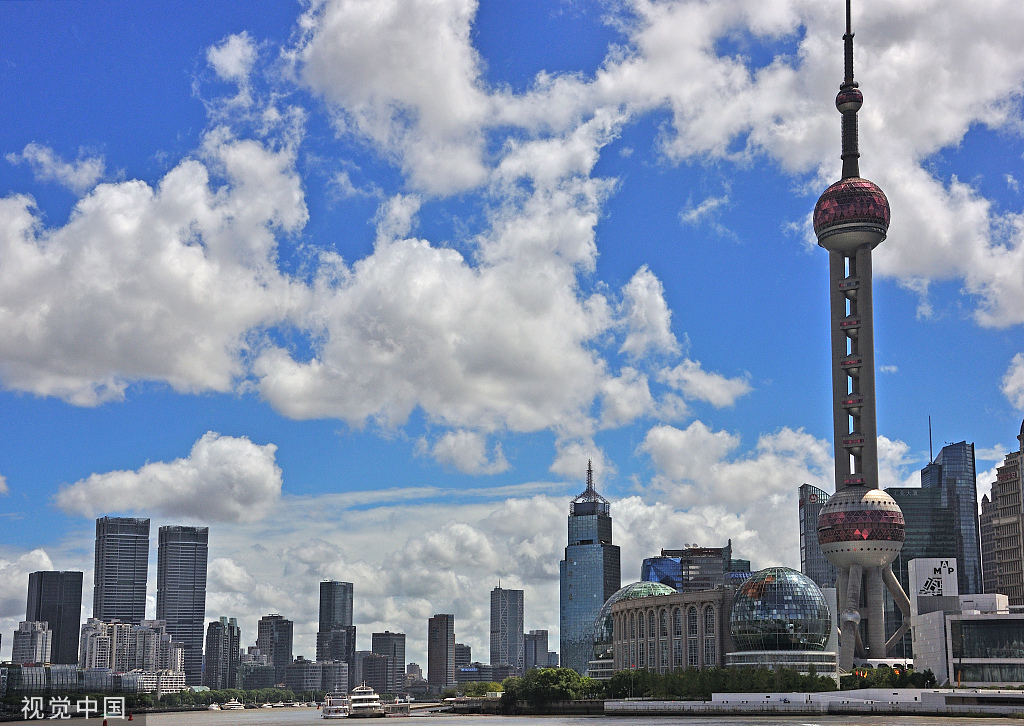Harmony epitomizes Chinese modernization
By Jinith de Silva | China Daily | Updated: 2023-06-07 08:10

China has experienced many ups and downs in its development journey. Under the leadership of the Communist Party of China, the People's Republic has made remarkable achievements, especially since the launch of reform and opening-up more than four decades ago. And all through its development journey, China has attached great importance to social harmony.
In fact, China has been making efforts to narrow the income gap between the rich and the poor, rural and urban residents, and the western and eastern regions of the country in a bid to build a truly harmonious society.
As part of its strategy to build a harmonious society, the Chinese government has been advancing socialism with Chinese characteristics. In today's world, modernization comprises urbanization, industrialization and economic globalization. But for China, modernization also means improving people's livelihoods, developing whole-process people's democracy, strengthening the rule of law, and promoting harmony between humans and nature — in short, building a harmonious society.
In the 102 years since its founding, the CPC has always adhered to its original mission of serving the Chinese people and realizing the rejuvenation of the Chinese nation. Accordingly, the Party accorded added importance to eradicating poverty since 2012, when Xi Jinping became the general secretary of the CPC Central Committee. As a matter of fact, thanks to Xi's focus on the issue, China eradicated extreme poverty at the end of 2020.
Under the leadership of the Party with Xi Jinping at the core, China achieved the goal of building a moderately prosperous society in all respects by the time the CPC celebrated its centenary in 2021.
Now, China is on way to realizing national modernization by 2035 and then achieving the second centenary goal of becoming "a great modern socialist country that is prosperous, strong, democratic, culturally advanced, harmonious and beautiful" by the middle of this century.
Cultural diversity and intercultural communication are important for the development of civilizations. In this regard, mutual understanding between China and the rest of the world is of particular importance. While China respects the development choices made by other countries and has been learning from their experiences, the rest of the world should also learn from China and make efforts to better understand its development goals.
The ancient Silk Road facilitated the exchange of ideas while promoting trade. Similarly, the China-proposed Belt and Road Initiative is aimed at improving infrastructure connectivity and promoting the exchange of ideas. Many Chinese inventions and products, including compass, paper-making, printing technology, gunpowder, tea and silk, have enriched global civilizations. And China has learned from the development made by other countries.
Today, Chinese leaders are trying to maintain global peace and security, and promote global development. In this context, China has proposed the Global Development Initiative, the Global Security Initiative and the Global Civilization Initiative.
As for Sino-Sri Lankan relations, China signed a trade agreement with Sri Lanka on the exchange of rice for rubber in 1952. It was the first governmental trade agreement that China signed with a country that had a different political system and with which it had no diplomatic relations at the time.
No wonder China has been reiterating that only when global resources are shared proportionately by countries can a harmonious global community be built. To achieve this goal, China has been promoting the Belt and Road Initiative for the past decade. And the Silk Road Fund and the Asian Infrastructure Investment Bank, which China has helped establish, have already boosted the economic development of many developing countries.
As an ancient Chinese saying goes, when you reap fruit you should remember the tree, and when you drink water you should remember its source.
So the world should take note of the fact that China has vowed to continue sharing its development opportunities with other countries, in order to promote global development and help build a global community with a shared future for mankind.
The author is the president of Sri Lanka China Society.
The views don't necessarily reflect those of China Daily.
























